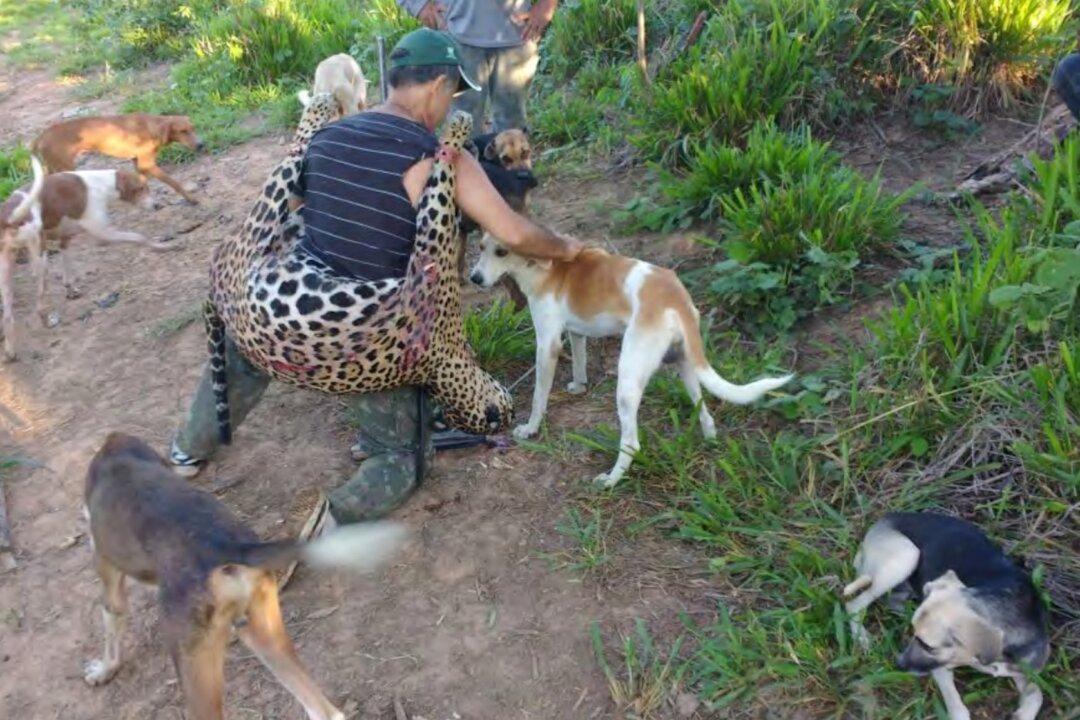Authorities in Brazil have broken up a gang of alleged poachers accused of killing thousands of endangered animals, including red brocket deer, collared peccary, and jaguars.
One of the poachers is allegedly a dentist who killed over 1,000 protected jaguars, according to two separate criminal complaints filed by the Federal Public Prosecutor’s Office (MPF)—one for illegal hunting (pdf) and another for the use of a firearm without a permit (pdf).





